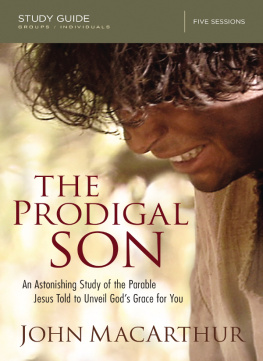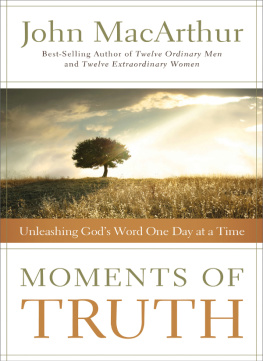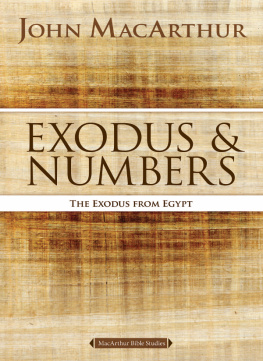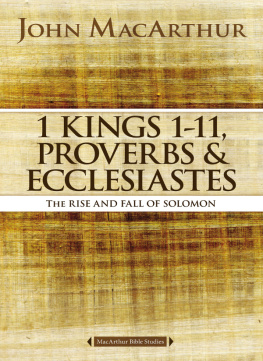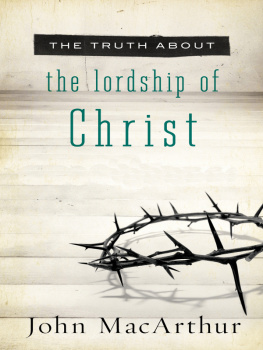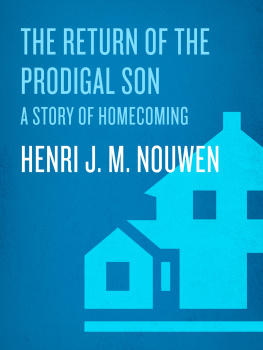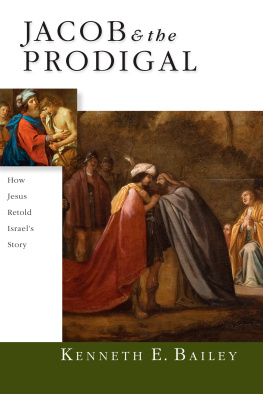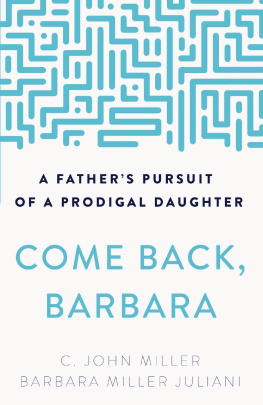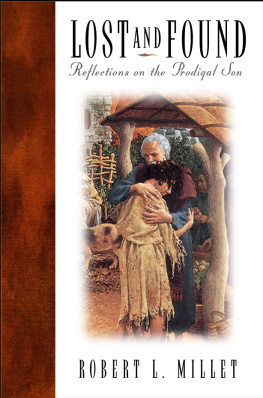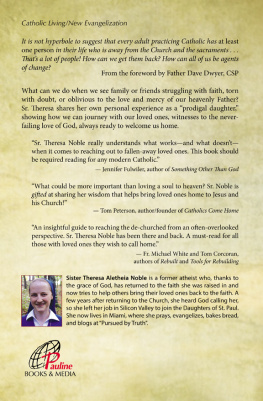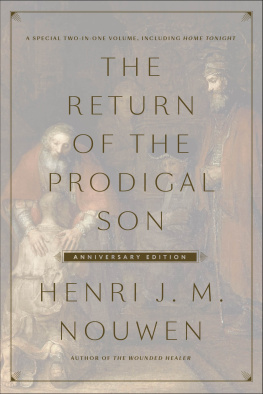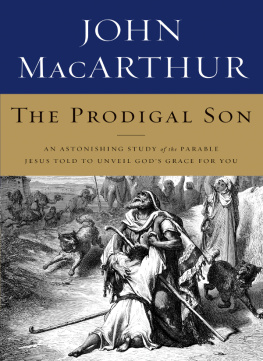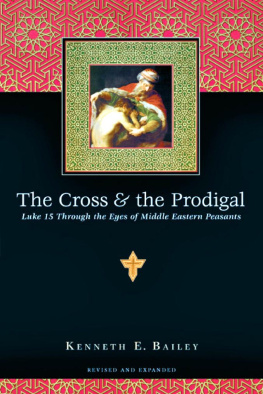O f all Jesus parables, the prodigal son is the most richly detailed, powerfully dramatic, and intensely personal. Its full of emotionranging from sadness, to triumph, to a sense of shock, and finally to an unsettling wish for more closure. The characters are familiar, so its easy for us to identify with the prodigal, to feel the fathers grief, and yet still (in some degree) sympathize with the elder brotherall at the same time.
The story is memorable on many levels, not the least of which is the gritty imagery that Jesus invokes throughout the parable. For instance, consider Jesus description of the prodigal son being so desperately hungry that he was willing to eat husks scavenged from the pigs. This would have graphically depicted the sons youthful dissolution in a way that was unspeakably revolting to Jesus Jewish audience.
In this study, you will delve into the Bible to explore the depths of this amazing story. In each session, expect an opening icebreaker-type question, a short Bible study, and then some time with John MacArthur on the video. Following the video, you will take some time to discuss what you learned and talk through some of the key points with your group. (Note that even though there are many questions provided, you do not need to use them all. Your leader will focus on the ones that resonate most with your group and guide you from there.)
The final component of each session is called Opening Up to the Parable. In this part of the study, your group will engage in a more hands-on type of exercise intended to move the message of the session from your head to your heart. Think of this time as an answer to the question, What am I supposed to do with this message? The hope is that this section will serve as a place where the big ideas of The Prodigal Son take on some flesh-and-blood reality.
Following your group time, there will be three more opportunities for you to engage the content of the study during the week. This between-sessions personal study is arranged into three parts: (1) an action-oriented exercise, which will help you incorporate the principles of the study into your daily life; (2) a contemplation-oriented exercise, which will help you focus on the key Scripture of the session; and (3) a reflection-oriented exercise, which will enable you to go deeper into the topic and explore the concepts in the accompanying The Prodigal Son book.
Beginning in session 2, there will be time before the video for you to check in about the previous weeks activities and process your experiences as a group. However, dont worry if you could not do an activity one week or if you are just joining the study. You will gain a lot of insights into Jesus parablesin particular the parable of the prodigal sonjust by listening to what others have learned during their time with the Word.
This study will open your eyes to many facets of the parable of the prodigal son that you likely have not considered before. However, if you want to get the most out of your experience, keep the following in mind: First, remember that the real growth in this study will happen during your group time. This is where you will process the content of the message, ask questions, and learn from others, so take advantage of this time.
Second, note that while small groups can be a deeply rewarding time of intimacy and friendship, they can also be a vehicle that can create problems and tensions between people. For this reason, work to make your group a safe place for people. This means being honest about your thoughts and feelings as well as listening carefully to everyone elses opinion.
Third, be sure to resist the temptation to fix a problem that someone might be having or shut down someone whose opinion doesnt completely match your own. You want to make your small group a place where people feel open to talk about God and share their feelings, so try to foster this type of environment whenever possible.
Finally, be sure to keep everything your group shares confidential. All this will foster a rewarding sense of community in your group and give Gods Spirit some space to challenge and transform you to become more like the father in this remarkable tale.
Note: If you are a leader, youll find additional instructions and resources for leading your small group through this study at the back of the guide. Some of the activities in the Opening Up to the Parable section require additional materials and setup, so be sure you read this over beforehand in order to be prepared.
The Prodigal Son parable is without dispute one of the finest examples of storytelling everwith its penetrating appeal to hearers emotions and imaginations; its succinct, tightly crafted form; and its powerful and personally engaging message.
J OHN M AC A RTHUR
I magine that you are being criticized for doing something that you know is rightsomething not just okay but deeply good. How do you respond to this criticism? You might feel hurt, angry, or defensive. You might be tempted to lash out at your critics or to retreat and avoid the conflict. Or, if youre Jesus, you might calmly tell several brief stories that express why youre doing what youre doing.
Jesus didnt tell these stories because He was incapable of carrying on a direct debate. In fact, He had previously tried talking to His critics using plain language. But that had only served to inflame them so much that they plotted His death long before the time for His self-sacrifice was ripe. So Jesus resorted to speaking to His opponents in stories, where the point was clear to anyone who took the trouble to think them through.
This is the setting in which Jesus told one of His most famous stories: the parable of the prodigal son.

